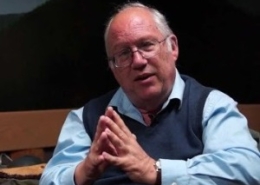
John de Graaf
Alum 1998John de Graaf, Outreach Director of The Happiness Initiative, has produced more than fifteen national PBS documentary specials and is the co-author of Affluenza: How Overconsumption Is Killing Us—And How to Fight Back. He has taught at Evergreen State College and serves on the board of Earth Island Institute. His new initiative is the Make America Beautiful Again campaign.
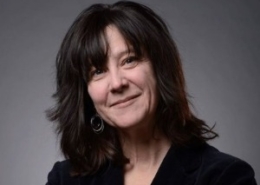
Anne-Marie Cusac
Alum 1998Anne-Marie Cusac is the author of Cruel and Unusual: Punishment in America. An Assistant Professor in the Department of Communication at Roosevelt University in Chicago, Anne-Marie is also an award-winning journalist. For ten years, she was an editor and investigative reporter for The Progressive magazine. Information from Anne-Marie’s investigations of the stun belt and the restraint chair helped to prompt the United Nations Committee Against Torture to call for a ban on the devices.
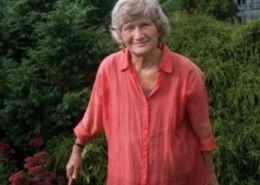
Melody Ermachild Chavis
Alum 1998Melody Ermachild Chavis is the author of a memoir, Altars in the Street. She also wrote Meena, Heroine of Afghanistan, about the young political activist who founded the Revolutionary Association of the Women of Afghanistan. Accompanied by Latifa Popal, Melody traveled to Afghanistan and Pakistan to interview women who knew Meena. Melody works as a private investigator defending people facing capital punishment. She lives in the San Francisco Bay Area, where she is also a peace and social justice activist.
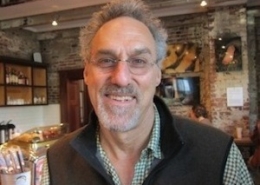
Woody Tasch
Alum 1999Woody Tasch is the author of Inquiries into the Nature of Slow Money: Investing as if Food, Farms, and Fertility Mattered and SOIL: Notes Towards the Theory and Practice of Nurture Capital. As treasurer of the Jessie Smith Noyes Foundation in the 1990s, he was a pioneer of mission-related investing. He was founding chairman of the Community Development Venture Capital Alliance. Utne Reader named him “One Of 25 Visionaries Who Are Changing Your World.”

Lansing Shepard
Alum 1999Lansing Shepard, a former writer for the Christian Science Monitor, specializes in conservation, environmental policy and natural history. A contributor to the Smithsonian Institution's Guides to Natural America series, he has been the writer for several exhibitions for the U.S. National Park Service and the University of Minnesota's Bell Museum of Natural History, with which he is affiliated. He most recently coordinated research and writing for Minnesota: A History of the Land, a five-part public television series on the history of Minnesota's landscapes, a joint project of the Bell Museum and Twin Cities Public Television.
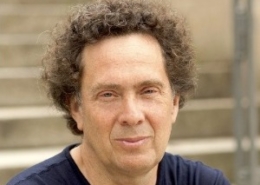
David Rothenberg
Alum 1999David Rothenberg has written and performed on the relationship between humanity and nature for many years. A recent article on David’s whale work appeared in the New York Times, along with articles in The Wire and on Living on Earth. His book on insects and music, along with a companion CD, published in April 2013 by St. Martins Press under the title Bug Music. It has been covered in the New Yorker, the Wall St Journal, the New York Times, on PBS News Hour and on Radiolab. David is also Distinguished Professor of Philosophy and Music at the New Jersey Institute of Technology, which has encouraged and supported all of his creative projects since 1992.
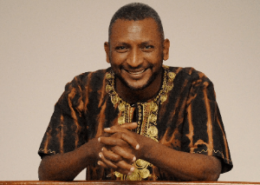
Peter Kimani
Alum 1999Peter Kimani is a leading African writer of his generation. Born in 1971 in Kenya, he started his career as a journalist and is the author of several works of fiction and poetry. He was one of only three international poets commissioned by National Public Radio to compose and present a poem to mark Barack Obama’s inauguration in January 2009. Peter is a founding faculty member of the Graduate School of Media and Communications at Aga Khan University in Nairobi, Kenya. He is also an award-winning journalist, rising to senior editor at The Standard.
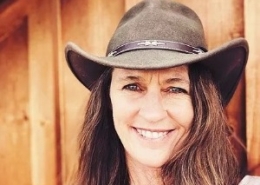
Amy Irvine
Alum 1999Amy Irvine is a sixth-generation Utahn and longtime public lands advocate. Her memoir, Trespass: Living at the Edge of the Promised Land, received the Orion Magazine Book Award and the Colorado Book Award. Amy's essays have appeared in Orion, Outside, The Best American Science and Nature Writing series, Pacific Standard, Climbing, Rock & Ice and High Country News. She is the recipient of the Ellen Meloy Desert Writers Award and a teaching fellowship for the Mountainview Low-Residency MFA program at Southern New Hampshire University—where she now teaches fiction and nonfiction.
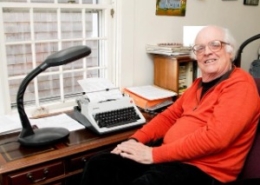
Edward Hoagland
Alum 1999Edward Hoagland is an author best known for his nature and travel writing. His non-fiction has been widely praised by writers such as John Updike, who called him "the best essayist of my generation," and Joyce Carol Oates: "Our Chopin of the genre." He has taught at The New School, Rutgers, Sarah Lawrence, CUNY, the University of Iowa, U.C. Davis, Columbia University, Beloit College, Brown and Bennington, beginning in 1963 and retiring in 2005.
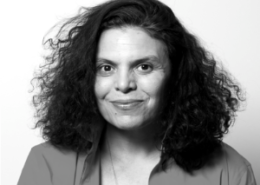
Judith Helfand
Alum 1999Judith Helfand is best known for her ability to take the dark and cynical worlds of chemical exposure, heedless corporate behavior and environmental injustice and them personal, resonant and even entertaining. Her award-winning films, three of which had world premieres at Sundance, were all nationally broadcast on PBS, HBO and The Sundance Channel and were linked to rigorous engagement. An educated and committed field-builder, Judith also co-founded Working Films.

Joan Gussow
Alum 1999Joan Dye Gussow is a nutritionist, educator, writer, and gardener. She was one of the first experts to advocate, as early as the 1970's, that we "eat locally, think globally." Joan has written books and articles for both academic and mainstream audiences advocating sustainable, healthy agricultures. She teaches a popular course on food and ecology at Columbia University and grows her own food in her backyard garden overlooking the Hudson River. Now in her eighties, Joan still lives the sustainable lifestyle she advocates.

Robert Frenay
Alum 1999Robert Frenay was an American author and lecturer who described and advocated a green or ecologically conscious approach to technological development and development of human civilization. After spending some time as a jazz critic, jazz magazine publisher and jazz event coordinator, he went to work for various periodicals doing article research. He ended up as a feature writer and contributing editor at Audubon Magazine after heading up an effort to raise money and acquire property for a green community plan in upstate New York. He covered developments in nature and technology for the magazine. Robert left his editing position at Audubon and wrote his first book, Pulse: The Coming Age of Systems and Machines Inspired by Living Things.
